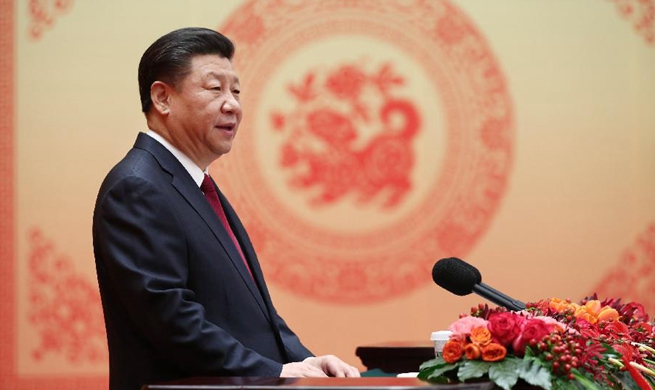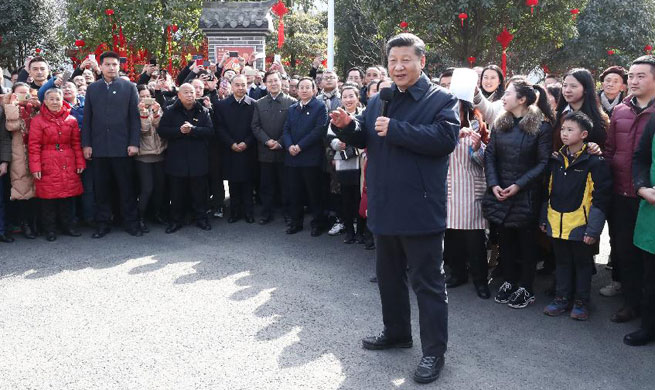by Keren Setton
JERUSALEM, Feb. 14 (Xinhua) -- A scientific study published recently in Science shows even the small particles emitted from human behavior have a huge influence on the weather, said Prof. Daniel Rosenfeld of the Hebrew University.
Published late in January in the reputable journal Science, the finds could be considered bad news, but as the second author of the research Prof. Daniel Rosenfeld of the Hebrew University of Jerusalem's Institute of Earth Sciences told Xinhua, they could also be the beginning of a positive process.
"Only when we become aware of an issue, we can do something about it," said Rosenfeld. "If you want to minimally disturb the natural system, then we can now take action."
It was previously thought larger aerosols created by man-made emissions had impact on clouds.
The new study shows even the tiniest particles, released into the air as a result of human actions, have what Rosenfeld calls "a disproportionate impact" on weather systems and crops.
In fact, the researchers who conducted the study, including Dr. Jiwen Fan of the Department of Energy's Pacific Northwest National Laboratory, believe many of the extreme weather patterns we are witnessing nowadays are simply not natural.
The study was conducted in the Amazon, a largely pristine, untouched area, where scientists studied the impact of pollution from nearby Manaus, a city of 2 million people in the Amazon.
Many of these small particles are released from the gases emitted from cars.
"If we reduce the use of gasoline by using different energy sources, technological means, cleaner fuels and so on, we can reduce the emission of the aerosols. But this requires an international effort," said Arye Vanger, the air quality and energy coordinator at Adam, Teva V'Din, an Israeli environmental advocacy group.
The clean setting of the Amazon allowed for a greater exposure of the impact of the tiny particles on the climate.
"Even though it was very clean, small aerosols cause vertical winds to double in intensity," explained Rosenfeld. "This causes heavy downpour in places without pollution where rainfall is more moderate."
For areas in drought, this might seem like a positive result. That is not the case. There are more floods but there is also more drought. Everything is being taken to an extreme.
The small particles cause the clouds to release more energy which then disturbs the energy balance of the atmosphere.
"The skyscape has changed dramatically compared to the natural scape," Rosenfeld said.
While the study makes room for optimism in the ability to prevent or at least decrease it, the challenge remains huge.
The small aerosols are emitted as a result of the actions that we take on a daily basis. They are mainly a result of the emissions coming from diesel-run cars.
Needless to say, global warming comes into play when discussing the impact of pollution on weather patterns.
According to Rosenfeld, the pollution from the small particles is detrimental to understanding the real effects of greenhouse gases.
"It masks the primary effect of the gases and makes it harder to understand and quantify what it will do to the earth climate," he explained.
At which point will the research findings translate into a global policy?
"The more understanding we have of the extent of the damage from pollution, it will be easier to convince decision makers that pollutions needs to be dealt with more seriously," Vanger tells Xinhua.
The road ahead is still long. While the research has begun to solve important pieces of the puzzle, a lot of work is still needed.
"Until we resolve this challenge of quantifying the impact of air pollution on the climate. We will not be able to properly quantify the overall impact of man on the climate system and the extent of warming that can be ascribed to our activities," Rosenfeld concluded.

















